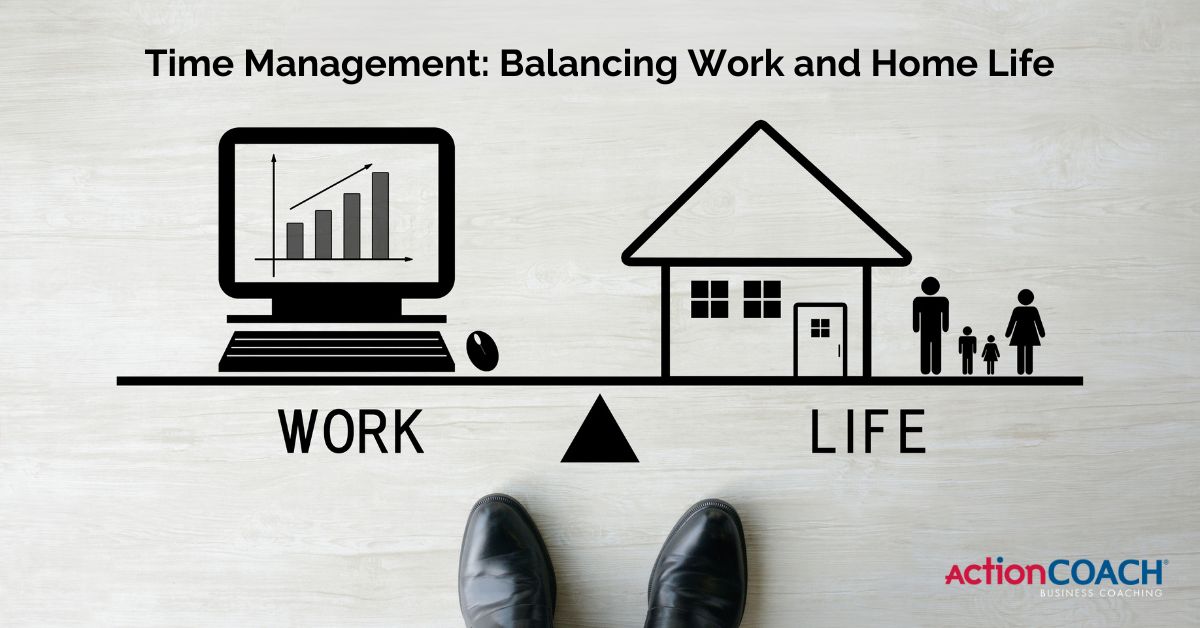
Time Management: Balancing Work and Home Life
“Your personal relationships and everything else will have to take a back seat while you get your idea, project, or business off the ground,” admits Kuldip ‘Kooks’ Sahota.
“But while long hours are unavoidable in the start up phase you have to remember that shouldn’t be the case forever.”
Kooks has coached dozens of business owners on improving their work life balance and has seen first hand what is possible. We’re interviewing him to find out what he’s learned over the years.
Understanding the Importance of Work-Life Balance
“It is possible to design your days and weeks so that you can have a life and make time for your work too. Ultimately, that’s what work-life balance is – it’s making time for the priorities when they’re a priority,” explains Kooks.
But to make a change, you must first realise there’s a problem. “You have to be aware that you’ve got poor self-management. You have to want to change”.
Time Management Techniques for Professionals
One of the first modules we teach in our six-step coaching system is called ‘Eliminating Chaos’, which helps business owners master their destination, money, product delivery, and time.
“When it comes to time mastery, the first tool we tell our clients to use is time blocking,” explains Kooks. This involves scheduling blocks of time for certain tasks and focusing on that task only.
The second time management strategy we advocate is the ‘skill fun matrix,’ which involves: listing your typical weekly tasks; scoring them based on how much you enjoy doing them and what skill level they require; and then delegating specific tasks to others.
“A great example is general admin work. Many business owners get lost in emails and sending invoices. Say that takes you five hours a week. Hire someone to do that for you! You can easily free up five hours for yourself because someone else is now doing your invoicing, credit control, chasing people up, and responding to basic emails”, Kooks advises.
Not everyone can hire someone to delegate responsibilities to. If you’re not in the position to do that yet, the good news is there’s still plenty that working on your own time management skills can achieve.
Here are the recurring favourites amongst Kook’s coaching clients:
- Being strict with your wakeup and sleep times
- Turning off your phone notifications during work hours
- Only checking and sending emails or making and receiving phone calls during certain hours (preferably using the time-blocking method)
Setting Boundaries Between Work and Home
When we help clients with goal setting, we always ask what time they’ve set aside to work on their goals. We often get a bit of a non-committal response: something like, “I kind of do it at this time.” This won’t work – you must set aside protected time to work on your personal and professional goals.
This is something which Kooks is passionate about “You’ve got to be strict at setting boundaries. No one should disturb you while you’re working towards those goals – that’s a non-negotiable”. This is even more important for those of you who work from home – setting boundaries with your loved ones and letting them know that you’re focussing on work for a certain amount of time will help everyone.
And it works both ways – disconnecting from work and protecting your work-home separation is crucial, too. But be precise with what you want to do – keeping yourself accountable will be easier. Don’t just say, “I want to spend time with my kids”. Consider whether you want to take them out, spend the day at home with them, drive them to school, or pick them up.
Creating Quality Family Time
You might already think you know what “quality family time” mean, but Kooks has a suggestion if you’re not sure – or if you’re still struggling to make it a priority. “Imagine it’s Monday morning, and money is no issue. You don’t have to go to work. What would you do with your loved ones that day? What would you do for the rest of the week? What would you do for the rest of the month?”, he says. “Draw diagrams, cut things out of magazines, print them off the internet. Create a vision!”
Now, how does that make you feel? If the thought of that life makes you feel good, then you’ve got to be willing to make some personal changes to achieve it. Are you always late to meet your partner for a coffee date? Do you perhaps miss the first five minutes of your children’s school play because you were working?
When these kinds of things happen regularly, they can easily lead to a breakdown in trust between yourself and your family. In the same way you ask your loved ones to respect your boundaries when you’re working on your business, you have to keep your promises to them too.
Implementing Self-Care in a Hectic Schedule
Self-care routines are often the first things to slip when things get busy
“You know that sitting all day, eating chocolates as a meal, working all night, not sleeping properly, and not investing in your health is likely at some point in the future to do something bad to you – but for the moment, you ignore it because you’re still alright”, Kooks says.
When you notice yourself slipping Kooks has a method he recommends to get you back on track.
Try it now. Answer the following four questions: “If I don’t change my life, and I continue as it is now, in five years’ time..”:
- What will my life look like?
- What will my relationships be like with the people I love?
- What will my relationship be like with myself?
And the final, most important question: “Am I willing to accept those outcomes?”.
Write down the answers and have them visible in your workspace. Refer to them whenever you feel your self-care is being neglected, and make the necessary changes. But recognise that you won’t just be able to rely on willpower to maintain these adjustments: “Willpower and motivation expire very quickly – within a week or two for most people”, Kooks explains. “So, the only way to continue these self-care routines is by making them a habit.”
And that’s where tools and systems can really help.
Tools for Effective Time Management
Time management tools and productivity apps are excellent ways to implement the strategies we’ve discussed.
Here are some of our favourites:
- Google Calendar: This allows you to colour-code your tasks, making time-blocking simple and creating a visual snapshot of your days, weeks and months. A trick here is to use traffic colour lights: put low value tasks in red, typical tasks in orange and the most valuable tasks (deep work, important meetings, exercise) in green. At a glance you can see how well the week turned out.
- Calendly: Calendly eliminates the stress of finding mutually convenient meeting times. You can send a link to someone outside your business, and they’ll automatically be able to see when you’re free. This way you can only offer meeting slots outside your reserved deep work and goal focused time blocks.
- Todoist: This is our favourite Todo list app. Dump any new tasks you get throughout the day into your ‘tasks inbox’ to immediately get them off your mind and prevent distraction, and then once a day process your inbox by tagging tasks based on priority and deadlines. The newest version even allows you to drag todos directly from your task list onto an open slot in your calendar!
- Freedom (Mac) / FocusMe (Windows): Use these tamper-proof blocking apps to restrict internet access or access to specific websites during the times when you need to focus – removing self-control from the equation.
- Audible: If personal development is one of your goals, but you struggle to prioritise sitting and reading a book, Audible lets you listen to books as you travel, shop or do chores.
What it Takes to Make Change Happen
Changing the way you use your time isn’t easy. In our experience it’s often a deeply emotional journey that takes months of effort. That’s probably why it’s one of the most frequent things a business coach is drafted in to help with.
“It’s got to be driven by emotion or pain,” concludes Kooks. “You have to either have a huge amount of love for what you want to achieve personally and professionally or have suffered a huge amount of pain and realised you can’t carry on as you are”.
Every time we get to help a coaching client with their work life balance it’s a privilege.
If you need further guidance then we’re here to help – get in touch to book a free no obligation trial coaching call and see if a coach could help you.


